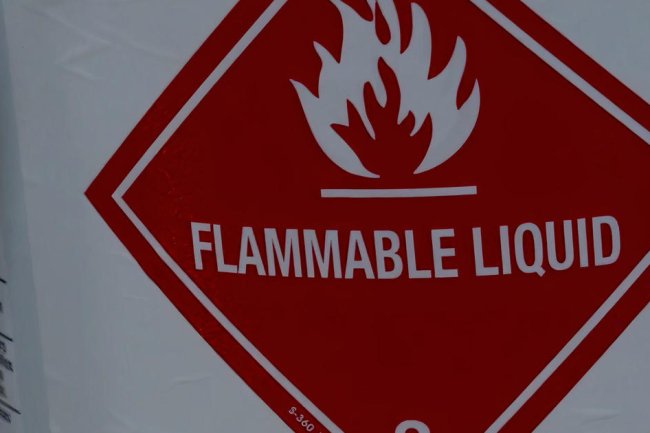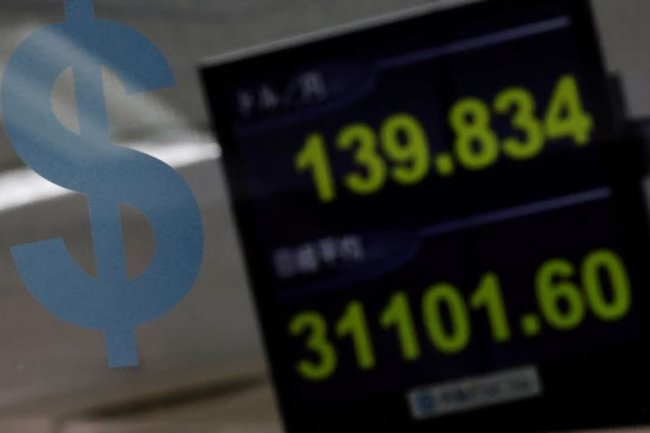White House adviser on microchips steps down
A key adviser in the Biden administration's effort to overcome the global microchips shortage and manage a deluge of congressional funding to expand America’s semiconductor industry will depart the White House this week. Ronnie Chatterji is leaving the National Economic Council, where he has served as the White House coordinator implementing major chips legislation passed last year, and returning to his pre-administration post as a business professor at Duke University. Congress passed the CHIPS and Science Act in 2022 to dole out $52 billion to expand domestic research and manufacturing of chips while simultaneously authorizing major increases to the budgets of federal science agencies. Those semiconductors are used for almost everything electronic, from powering artificial intelligence and laptops to guiding military munitions and drones. Chatterji’s departure this Friday comes as the Biden administration’s semiconductor strategy has evolved from a frenzied search for a short-term fi


A key adviser in the Biden administration's effort to overcome the global microchips shortage and manage a deluge of congressional funding to expand America’s semiconductor industry will depart the White House this week.
Ronnie Chatterji is leaving the National Economic Council, where he has served as the White House coordinator implementing major chips legislation passed last year, and returning to his pre-administration post as a business professor at Duke University.
Congress passed the CHIPS and Science Act in 2022 to dole out $52 billion to expand domestic research and manufacturing of chips while simultaneously authorizing major increases to the budgets of federal science agencies. Those semiconductors are used for almost everything electronic, from powering artificial intelligence and laptops to guiding military munitions and drones.
Chatterji’s departure this Friday comes as the Biden administration’s semiconductor strategy has evolved from a frenzied search for a short-term fix to the global chips shortage to placing long-term bets on U.S.-based manufacturing facilities in an effort to depend less on suppliers in Taiwan, which has become a political liability amid rising tensions with China.
“Supply chain policy is something that's still relatively new in Washington and around the world,” Chatterji said in an interview on the POLITICO Tech podcast.
Chatterji, who also served as a senior economist in the Obama White House, said, “if you'd asked me back then who was in charge of supply chains, I wouldn't necessarily know who to turn to. But now, a lot of us are focused on supply chains. That new skill set is something that is going to take time to percolate through government.”
Chatterji joined the Commerce Department as chief economist in April 2021 and was put in charge of a “war room” tasked with detangling global supply chains for goods ranging from lumber to microchips. At the time, the ongoing Covid-19 pandemic had ships docked outside the nation's ports waiting to unload their cargo, and store shelves were running low on everything from toilet paper to diapers.
But the global semiconductor shortage quickly became a focus for Chatterji and Commerce at large. A pandemic-induced surge in demand for at-home electronics like computers and televisions made microchips hard for many companies to come by. The shortage prompted automakers, for instance, to halt assembly lines, furlough workers and hike sticker prices.
Commerce Secretary Gina Raimondo in a statement to POLITICO described Chatterji as “an incredible asset” to the administration, adding she “relied on his expertise and guidance to help make major strides in bolstering America’s supply chains, strengthening our national security, and creating good jobs across America.”
After Congress approved $52 billion to spur U.S. microchip research and development through the CHIPS and Science Act last summer, Chatterji moved over to the White House to oversee the implementation of the law and coordinate supply chain efforts across federal agencies.
“Ronnie's unique mix of economic policy expertise and management skills have made him an invaluable asset to the White House economic team,” National Economic Council Director Lael Brainard said in a statement.
Chatterji’s work has paved the way for disbursing the first wave of money in the coming months under the CHIPS Act for companies that expand their domestic manufacturing.
Companies like Micron, Intel and Samsung have pledged $200 billion for new U.S. fabrication facilities in anticipation of the government awarding subsidies to support at least some of those projects. And the Commerce Department has built out a new CHIPS Office with over 100 employees tasked with vetting applications and doling out the money.
Those funding decisions are being made as other players like the European Union, United Kingdom and China, roll out similar financial incentives. That could lead to a waste of taxpayer money if the U.S. finds itself in a bidding war trying to lure the same chipmakers, Chatterji cautioned, unless countries agree to invest in different segments of the supply chain.
“We have to avoid these costly races to the bottom,” Chatterji said. “We're all aware of these bidding wars that happen when economic incentives are being handed out, and whether it's state to state or country to country, you waste money that way. I've tried to implore all my colleagues to think about it that way.”
At the same time, the world now has a glut of microchips as demand has dropped. Monthly chip exports from places like Taiwan and South Korea have tumbled, costing companies like Samsung billions as softening demand has taken a toll on the earnings. But, as an economist, Chatterji said he’s focused on the sector’s long-term growth potential.
“We should be less worried about the short-term, up and down to this industry, and much more worried about having in place what we need to produce chips for what I see is going to be a growing market in the years to come,” Chatterji said, noting that electric vehicles, large language models for artificial intelligence and other emerging technologies will generate new demand for chips.
The biggest hurdle, he predicts, will be training enough workers to fill jobs. The Semiconductor Industry Association projected in a report released last week that the industry will be short 67,000 workers by 2030. Overcoming the labor shortage will require semiconductor-specific training programs for people, including those without college degrees, Chatterji said.
“That's easier said than done,” he said. “I see a lot of excitement around the country and it's something that I really want to go right. We will need a skilled American workforce to make this work. That just has to go right for us to be successful here.”
Annie Rees contributed to this report.
To listen to the interview with Chatterji and other tech leaders, subscribe to our new daily POLITICO Tech podcast.
What's Your Reaction?

















